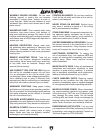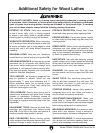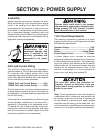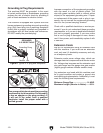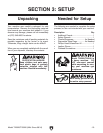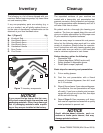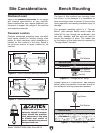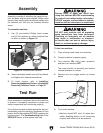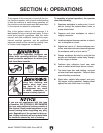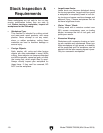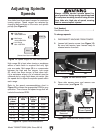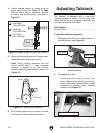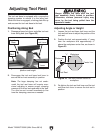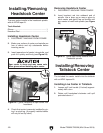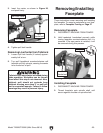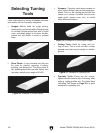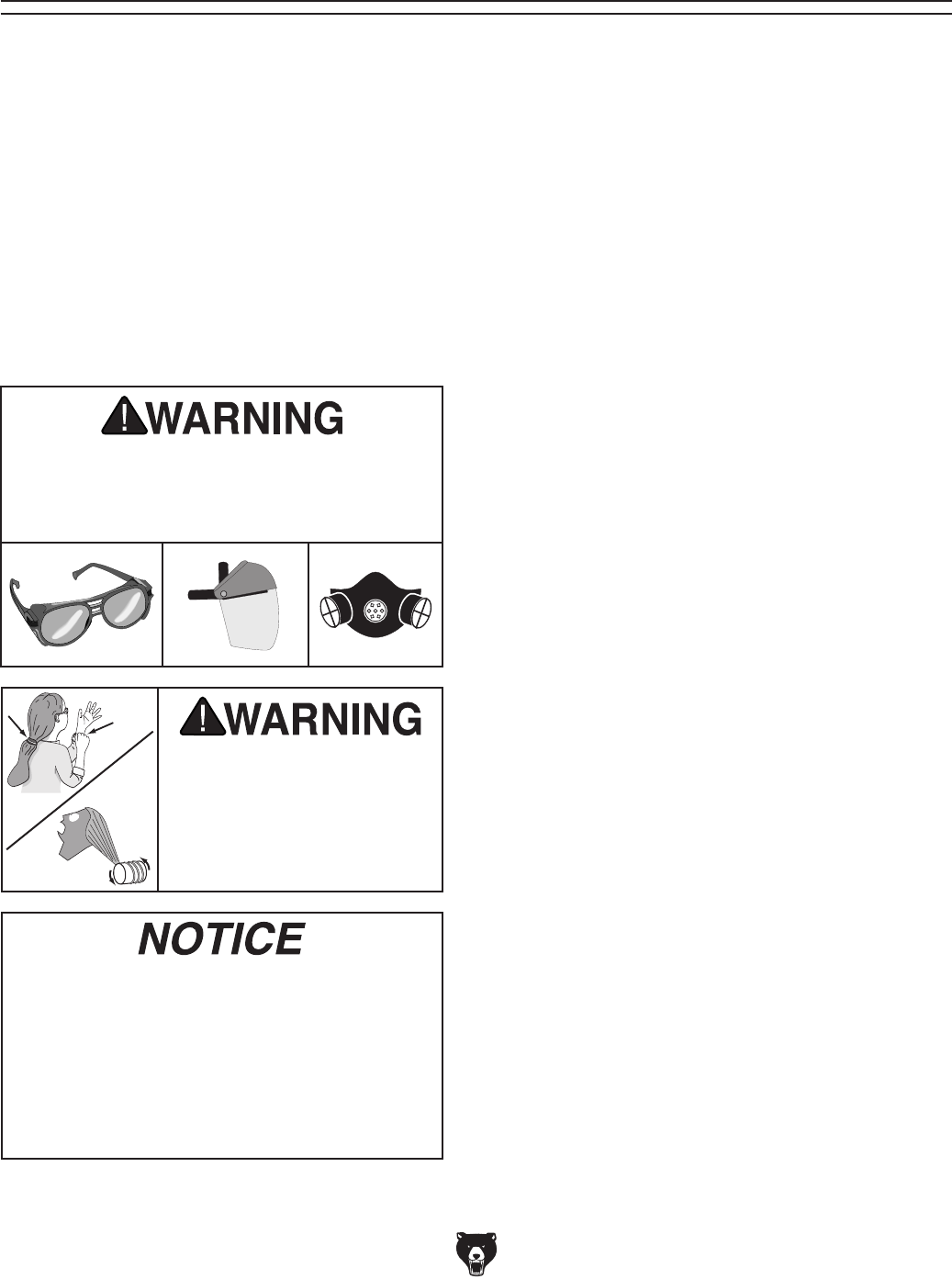
Model T25920/T25926 (Mfd. Since 08/14)
-17-
SECTION 4: OPERATIONS
To complete a typical operation, the operator
does the following:
1. Examines workpiece to make sure it is suit-
able for turning. No extreme bows, knots, or
cracks should exist.
2. Prepares and trims workpiece to make it
roughly concentric.
3. Installs workpiece between centers, or attach-
es it to faceplate or chuck.
4. Adjusts tool rest to
1
⁄8" above workpiece cen-
terline, and sets minimum clearance between
the workpiece and lip of tool rest to
1
⁄4".
5. Rotates workpiece by hand to verify that the
spindle and workpiece rotate freely through-
out the range of motion.
6. Positions dust collection hood near work
piece to collect wood chips secure in place.
7. Ties back loose hair and clothing, and puts
on face shield and respirator. Takes all other
required safety precautions.
8. Starts lathe, adjusts lathe speed, and care-
fully begins turning operation, keeping chisel
against tool rest entire time it is cutting.
The purpose of this overview is to provide the nov-
ice machine operator with a basic understanding
of how the machine is used during operation, so
the
machine controls/components
discussed later
in this manual
are easier to understand.
Due to the generic nature of this overview, it is
not intended to be an instructional guide. To learn
more about specific operations, read this entire
manual and
seek additional training from expe-
rienced
machine operators, and do additional
research outside of this manual by reading "how-
to" books, trade magazines, or websites.
If you are not experienced with this type
of machine, WE STRONGLY RECOMMEND
that you seek additional training outside of
this manual. Read books/magazines or get
formal training before beginning any proj-
ects. Regardless of the content in this sec-
tion, Grizzly Industrial will not be held liable
for accidents caused by lack of training.
Keep hair, clothing, and
jewelry away from mov-
ing parts at all times.
Entanglement can result
in death, amputation, or
severe crushing injuries!
Eye injuries or respiratory problems can
occur while operating this tool. Wear per-
sonal protective equipment to reduce your
risk from these hazards.



